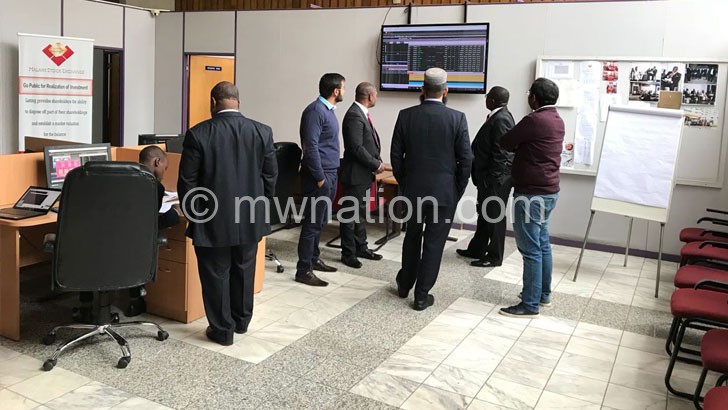Trips leeway extended to 2021
 The World Trade Organisation (WTO) has extended the deadline on Trade Related Intellectual Property Rights (Trips) enforcement by Least Developed Countries (LDC) to July 2021.
The World Trade Organisation (WTO) has extended the deadline on Trade Related Intellectual Property Rights (Trips) enforcement by Least Developed Countries (LDC) to July 2021.
In a formal meeting held on June 11, the WTO members agreed to add an extra eight years to the leeway on LDCs—including Malawi—which was coming to an end on July 1 2013.
Trips—an agreement under the WTO—obliges members to provide and enforce copyright, geographic indications, integrated circuit layout designs, patents, new plant verities, trademarks and confidential information.
The Ministry of Industry and Trade spokesperson Wiskes Nkombezi earlier this year before the extension was announced, said Trips compliance would entail the alignment of Malawi laws, including civil and criminal procedures in courts, administrative procedures, and intervention of police and customs authorities.
Nkombezi feared that to comply with the agreement, there is need to assume a wide range of obligations in almost all areas of intellectual property.
He noted that in many areas, the pre-Trips laws of Malawi require substantial change, particularly to handle new issues, such as protection under copyright law of computer programmmes and data bases.
Nkombezi added that there are also areas in which no previous legislation existed at all such as in the case of undisclosed information, integrated circuits and plant varieties.
He contended that Malawi has not developed technologically and the country needs freedom from intellectual property rules and the high prices associated with them if we are to develop economically and technologically. Ministry of Industry and Trade feared that any deviation from the standards set by the agreement, if the exemption was not extended, may lead to a dispute with another member under WTO rules.
National Working Group on Trade Policy (NWGTP) chairperson Geoff Mkandawire is also apprehensive about the possible implications of the deadline.
He noted that a full enforcement of the agreement would be disastrous to Malawi, adding that Malawi needs to develop its own technology.
Mkandawire argued that the country needs to encourage research and technical development benefit from locally protected products.
He added that patents and copyright laws are designed to boost trade and encourage innovation.
During the May 11 WTO meeting, LDCs, speaking individually and through their coordinator, Nepal, welcomed the decision to extend the deadline to July 2021. They said it would allow an important group of WTO members to integrate better into the multilateral trading system.
Some members during the meeting said the flexibility and compromise shown should be adopted in other subjects under negotiation in the WTO.
However, some developing countries which are not LDCs said they had reservations about the process even though they were willing to join the consensus to accept the transition.
Particularly, India said the decision should have adopted the original request to extend the transition for each country until it graduates from being LDC, instead of extending by eight years.
India further argued that the negotiation should have included more countries from the broader membership.
Closer to home, South Africa also had reservations.
The WTO, however, notes that the transition period for LDCs until July 1 2021 does not exempt the countries entirely from applying the agreement.
WTO explains that the leeway gives LDCs the freedom to choose whether or not to protect trademarks, patents, copyright, industrial designs, geographical indications or any other form of intellectual property covered by the agreement.
WTO adds that if they do protect it — and several do have some intellectual property laws — then they have to apply provisions on non-discrimination.
However, WTO explains that the decision does not affect the separate transition period for LDCs to protect patents on pharmaceuticals, which was agreed in 2002 as a result of the Doha Ministerial Declaration on
Trips and public health. Under that earlier decision, LDCs are not required to protect these patents until 2016. These LDCs did not refer to this in their proposal for the general transition period.
The decision does refer to LDCs’ need to “create a sound and viable technological base and to overcome their capacity constraints”, including benefiting from developed countries’ incentives for their companies and institutions to transfer technology.





